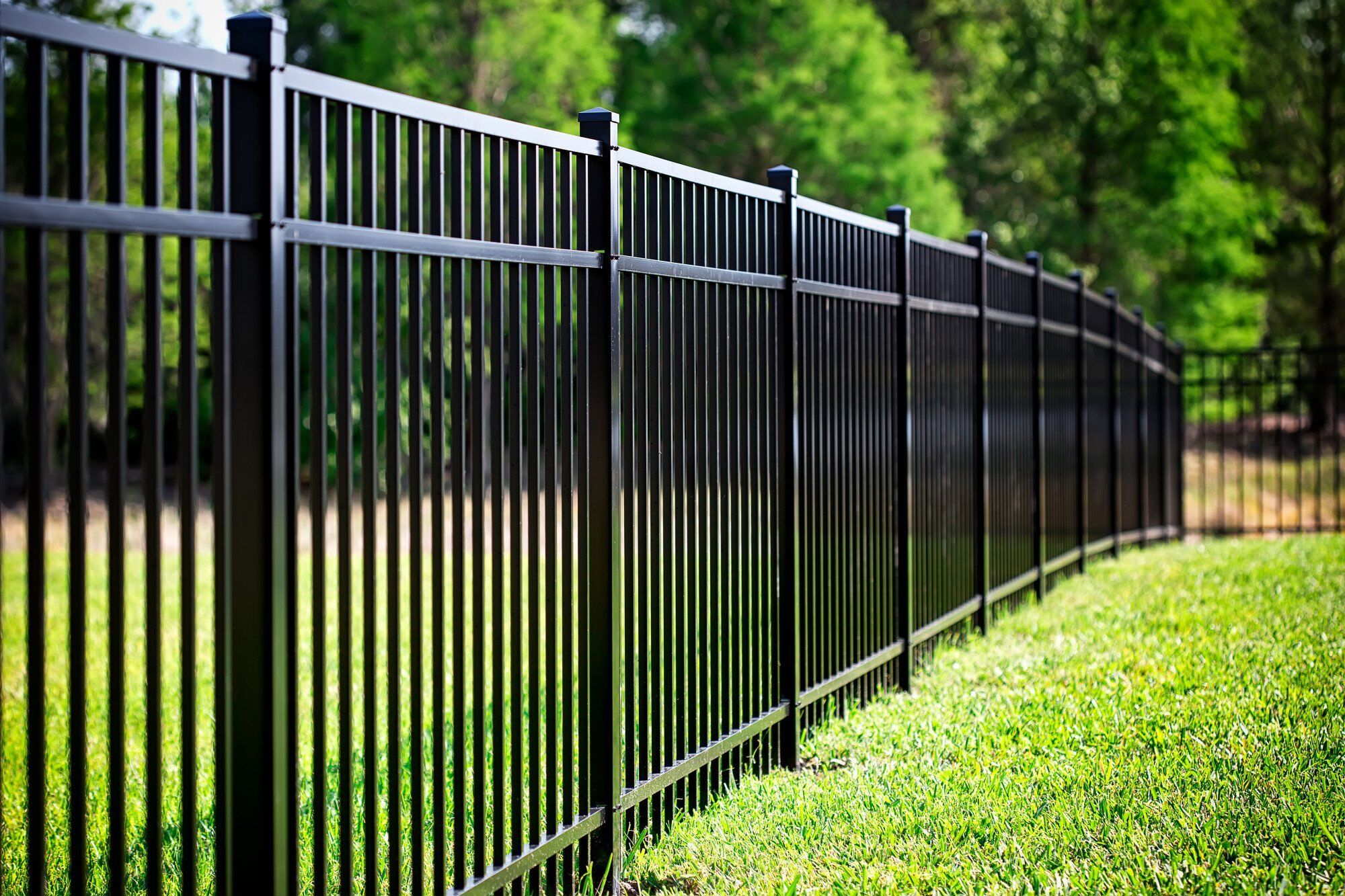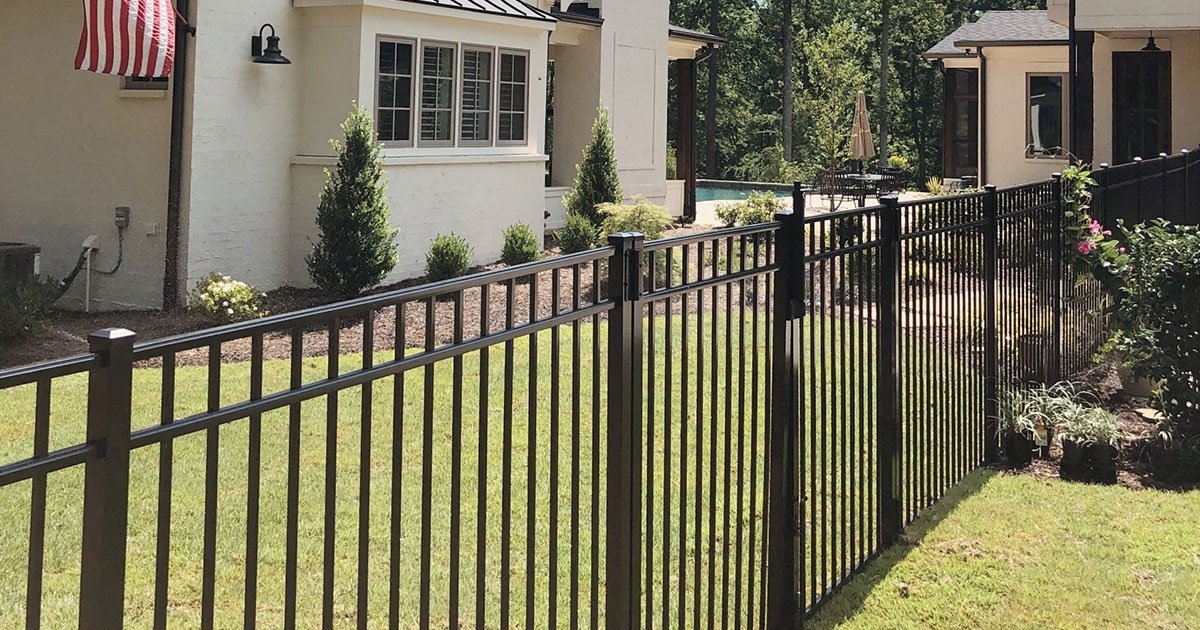All Categories
Featured

Fencing not just boosts the safety and security and personal privacy of your residential or commercial property however also plays a vital function in its overall aesthetic. However, among one of the most crucial factors to consider when preparing a fencing task is the price. The price of a fence depends on the material you choose, the size of your residential or commercial property, and the complexity of the setup. Comprehending the typical costs of various fencing products can assist you make an educated choice that fits your budget plan and style choices. Below is a break down of usual fencing materials and their linked costs.
- Wooden Fencing. Wood remains one of the most preferred fence materials due to its traditional look and versatility. The cost of wood fencing varies based on the kind of wood used, such as ache, cedar, or redwood.
Average Cost: $15--$ 50 per linear foot. Aspects Influencing Cost: Pressure-treated timber is a lot more budget-friendly, while costs alternatives like cedar or redwood are extra costly. The design of the fence, such as picket, split rail, or personal privacy, also influences the cost. While wooden fences are visually pleasing, they require normal upkeep, consisting of securing, discoloration, or paint, to avoid weather condition damage and expand their life-span.
- Vinyl Fencing. Plastic fence is a sturdy, low-maintenance alternative that is immune to weather, pests, and rot. It's an exceptional option for property owners seeking long life without substantial maintenance.
Typical Cost: $20--$ 60 per direct foot. Variables Affecting Cost: Costs can vary relying on the thickness of the vinyl, the design (e.g., picket, personal privacy, or cattle ranch), and any attractive aspects. Vinyl fencing has a higher upfront expense compared to wood, its toughness and marginal maintenance make it cost-efficient over time.
- Chain Web Link Fencing. Chain web link is a budget-friendly and functional selection for secure fencing, often used for protecting big areas or industrial properties. While it doesn't supply much personal privacy, it is simple and long-lasting to install.
Average Price: $10--$ 30 per linear foot. Variables Influencing Cost: Layered chain web link (galvanized or vinyl-coated) is much more pricey but provides added sturdiness and aesthetic allure. This product is perfect for home owners trying to find an economical fence remedy that prioritizes performance.

- Light weight aluminum Secure fencing. Light weight aluminum fencing is a classy, rust-resistant product that imitates the appearance of functioned iron without the high upkeep or cost.
Average Price: $25--$ 70 per straight foot. Factors Affecting Cost: The rate varies relying on the layout, elevation, and quality of the product. Ornamental or decorative styles have a tendency to cost even more. Light weight aluminum fencing is lightweight and durable, making it a prominent selection for residential or commercial properties with sloped surface.
- Wrought Iron Secure Fencing. Wrought iron fence is recognized for its toughness, sturdiness, and elaborate designs. It adds a touch of refinement to any type of residential or commercial property, however it features a greater cost tag.
Ordinary Cost: $30--$ 100 per straight foot. Variables Influencing Expense: Personalized styles and intricate information increase the cost. In addition, functioned iron requires routine maintenance to stop corrosion. This product is a terrific choice for home owners seeking a fencing that incorporates protection and style.
- Compound Fencing. Compound fence, made from a mix of timber fibers and recycled plastic, provides the look of timber with the toughness of vinyl. It's a low-maintenance and environmentally friendly choice.
Ordinary Expense: $25--$ 55 per direct foot. Elements Affecting Price: Premium detailed designs or composite products will boost the cost. Compound secure fencing is optimal for those that desire a lasting fencing option without endangering on appearances.
- Bamboo Fencing. Bamboo is a green choice that includes an one-of-a-kind, tropical aim to your residential property. It's fairly inexpensive and light-weight but not as sturdy as other products.
Average Price: $12--$ 30 per linear foot. Elements Affecting Price: Rolled bamboo secure fencing is generally less costly than private bamboo posts. While bamboo is wonderful for decorative objectives, it may not stand up to extreme climate in addition to various other materials.
- Rock or Stonework Fence. Rock or masonry fencing supplies unrivaled sturdiness and an ageless look. These fencings can last for decades however come with a considerably greater cost.
Ordinary Expense: $50--$ 150 per linear foot. Aspects Influencing Cost: The sort of rock or brick utilized, the height of the fence, and the complexity of the design affect the cost. This sort of fencing is best for property owners trying to find a long-term financial investment that adds significant curb allure and residential or commercial property value.
Added Prices to Consider. Beyond the product, there are additional expenditures to account for in your fence project:
Labor: Setup costs vary from $5 to $20 per straight foot, relying on the product and complexity. Gates: Including gateways generally costs $150--$ 1,000 or even more, relying on the style and material. Allows: Some areas call for permits for fence installation, which can include $50--$ 400 to the overall expense. Final thought. Choosing the ideal fence material depends on your budget, design choices, and the key function of the fencing. While wood fences are functional and affordable, products like vinyl and light weight aluminum provide low-maintenance longevity. If aesthetics and longevity are your priorities, take into consideration wrought iron, composite, or masonry. By considering the costs and benefits of each product, you can decide that enhances both the functionality and look of your building.
Latest Posts
About Us: Discover the Story Behind Montclare Auto Repair and Our Trusted Solutions
Published Apr 20, 25
2 min read
Elevate Your Home with Expert Siding Solutions
Published Apr 20, 25
2 min read
Claim Goodbye to Scrubbing: Bath Fitter's Uncomplicated Washroom Upgrade
Published Apr 19, 25
1 min read
More
Latest Posts
About Us: Discover the Story Behind Montclare Auto Repair and Our Trusted Solutions
Published Apr 20, 25
2 min read
Elevate Your Home with Expert Siding Solutions
Published Apr 20, 25
2 min read
Claim Goodbye to Scrubbing: Bath Fitter's Uncomplicated Washroom Upgrade
Published Apr 19, 25
1 min read